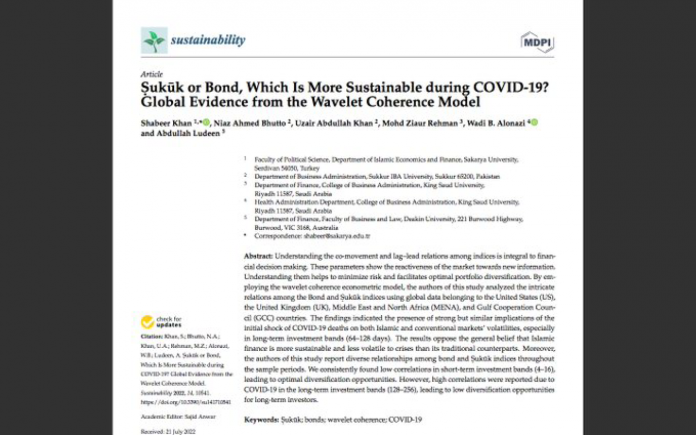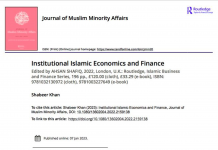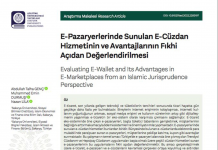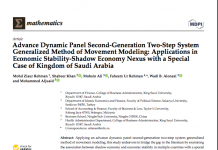Erişim Linki: https://www.mdpi.com/2071-1050/14/17/10541
Abstract
Understanding the co-movement and lag–lead relations among indices is integral to financial decision making. These parameters show the reactiveness of the market towards new information. Understanding them helps to minimize risk and facilitates optimal portfolio diversification. By employing the wavelet coherence econometric model, the authors of this study analyzed the intricate relations among the Bond and Ṣukūk indices using global data belonging to the United States (US), the United Kingdom (UK), Middle East and North Africa (MENA), and Gulf Cooperation Council (GCC) countries. The findings indicated the presence of strong but similar implications of the initial shock of COVID-19 deaths on both Islamic and conventional markets’ volatilities, especially in long-term investment bands (64–128 days). The results oppose the general belief that Islamic finance is more sustainable and less volatile to crises than its traditional counterparts. Moreover, the authors of this study report diverse relationships among bond and Ṣukūk indices throughout the sample periods. We consistently found low correlations in short-term investment bands (4–16), leading to optimal diversification opportunities. However, high correlations were reported due to COVID-19 in the long-term investment bands (128–256), leading to low diversification opportunities for long-term investors.
Khan, S.; Bhutto, N.A.;Khan, U.A.; Rehman, M.Z.; Alonazi,W.B.; Ludeen, A. Sukuk or Bond, Which Is More Sustainable during COVID-19? Global Evidence from the Wavelet Coherence Model. Sustainability 2022, 14, 10541.https://doi.org/10.3390/su141710541








